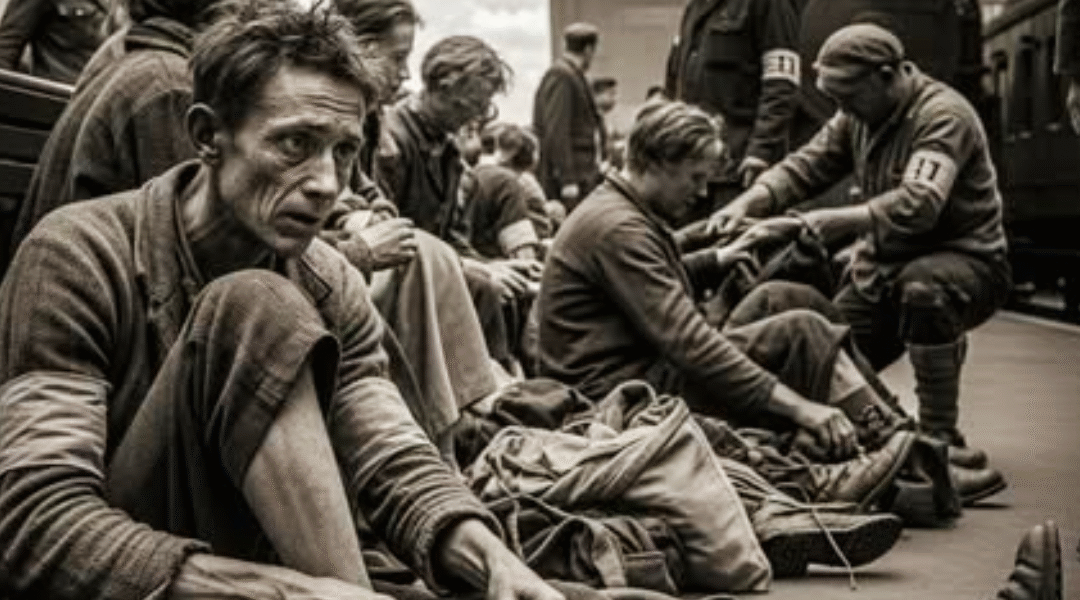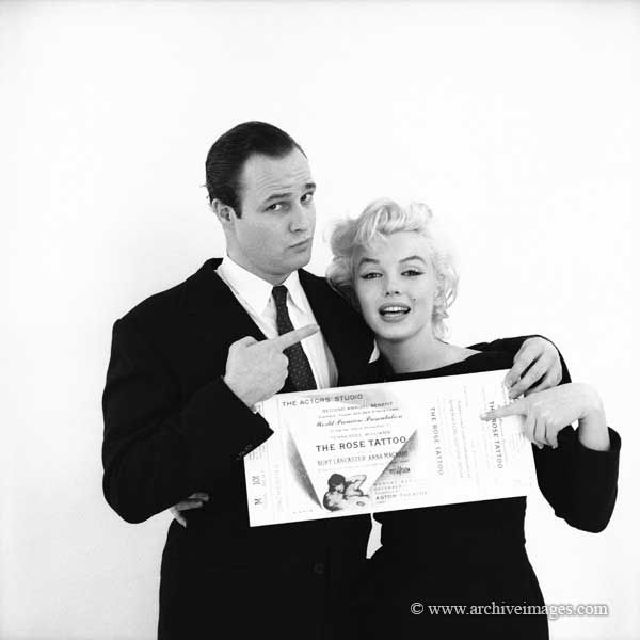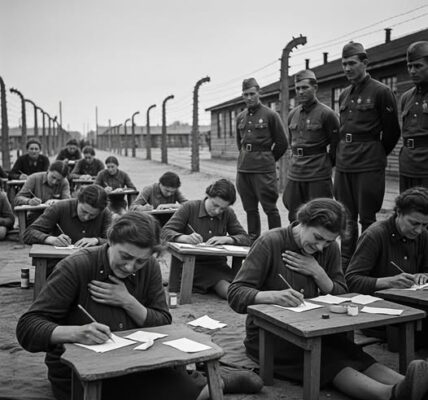Shoes at the Station – Prague, 1945
The train pulled into Prague station, panting heavily, as if carrying the burden of the war it had just endured. The carriages were filled with people with gaunt faces, their eyes empty, yet still sparkling with a spark that neither hunger, nor cold, nor night marches could fully extinguish. Everyone stepped out cautiously, as if testing whether the platform truly existed or was just another illusion, a dream cut too brutally short. Yet something else hung in the air—the promise of a new beginning lurking amid the smoke and dust, though no one knew how long it would last.
Volunteers waited on the platform. They had crates full of shoes—simple, leather, sometimes new, sometimes used, but clean and sturdy. These shoes weren’t just footwear. They were a symbol, some secret sign that the world remembers humanity, that a stranger could reach out and restore dignity to those relegated to the role of shadows. Not everyone, however, knew that behind this simple gesture lay a story, one that no one had ever fully written down, because true secrets are hidden in silence, not on paper.
A man whose eyes were so sunken they resembled dark wells descended the carriage steps. Each step trembled, as if the earth might reject his existence, as if the platform might vanish before he could even step on it. A pair of leather shoes were handed to him. He couldn’t put them on for a long time. He held them to his face, inhaling the scent of leather, newness, care. Perhaps he remembered the scent of his father’s shoes from years ago, the scent of a home that no longer existed. Tears welled in his eyes, but no one knew whether he cried from joy or from fear that this gift would prove fleeting like all else.
When he finally slipped his feet inside, slowly, almost solemnly, the platform stilled. They fit. They were like a second skin, and yet they seemed larger—larger than the suffering, larger than the loss, larger than the past that could never be undone. He lifted his head and whispered, “I walk like a human again.” The words, barely audible, echoed off the station walls, off the locomotive’s whistle, off the hearts of those watching. And though no one admitted it aloud, everyone felt that those few syllables held more than they could ever understand.
The woman standing next to him covered her mouth with her hand, as if trying to hold back a sob. There was something familiar in her gaze—the same silent question that haunted all survivors: Why me? Does the fact that I’m alive mean I carry something within me that others will never know? No one asked such questions aloud at the station, but between the shriek of the locomotive and the rustle of footsteps, the unspoken secret could be heard.
Others who had also received shoes sat on cold benches, tying their shoelaces with trembling fingers. It was a banal yet monumental gesture. As if each knot in the laces held together the fragmented fragments of humanity. But no one asked who had collected these shoes, who had decided that they would be distributed in this very place, at this very hour. Everyone sensed that there was another layer to this story – hidden, hidden beneath the surface, ready to be revealed only at the right moment.
The locomotive hissed steam, and the crowd shifted restlessly. The man in the new boots stood, looked at his feet, and closed his eyes for a moment. Perhaps he saw in his mind the road that awaited him—an unknown road, full of twists and turns, dangers, but this time paved with hope. After all, even the most weary feet need shoes to continue. And in that moment, it seemed as if the mystery of war had its own agenda—that every step toward the future would also be an attempt to discover what had truly been lost and what might yet be found.
Because at the Prague train station in 1945, they weren’t just handing out shoes. They were handing out the illusion that humanity could be regained, that amidst the ruins and injustices, something could still be put on that would give rise to a new life. And yet, no one could be sure whether this beginning would endure or crumble like dust on the tracks. And therein lay the greatest mystery – the promise of a future that gave no peace, but compelled one to take steps. One by one.





